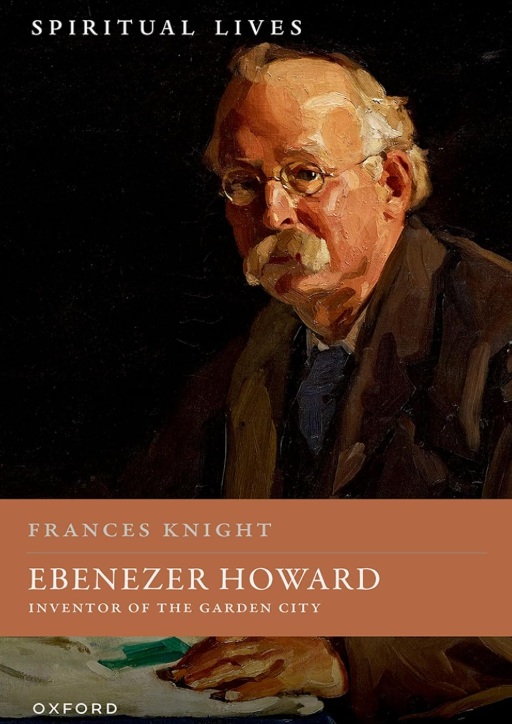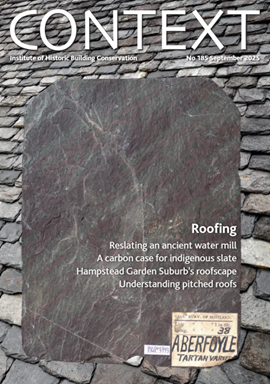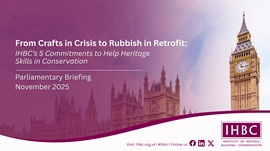Ebenezer Howard: inventor of the garden city
Ebenezer Howard: inventor of the garden city, Frances Knight, Oxford University Press, 2023, 240 pages, hardback.
One night in 1914 an idea came to Ebenezer Howard in a dream. He would write a message to the German people, go up in a plane (yes, in 1914) and scatter pacifist leaflets (1,200,000 of them, he calculated) over Germany. His message would warn of the danger of nations being plunged into slaughter by the decisions of tyrannical rulers. Arbitration at the Hague would enable ‘humanity and civilisation [to] triumph over brutality and barbarism.’
Howard’s friend, the playwright George Bernard Shaw, told him that the idea was ‘entirely impractical’ and that he should ‘sit quietly at home.’
The man often described as the father of modern town planning, and a person of notable modesty, Howard certainly had a high degree of self-confidence. Having founded Letchworth Garden City in 1903, by 1919 he was disappointed by its financial difficulties and lack of progress. So he decided to found another garden city. Without the support of his colleagues in the Garden Cities and Town Planning Association, he went to an auction and bid for the land on which to build Welwyn Garden City. Lacking the necessary funding, he somehow persuaded the auctioneer to lend him the balance of the deposit.
After his death Shaw described Howard as ‘one of those heroic simpletons who do big things while our prominent worldlings are explaining why they are Utopian and impossible.’
The subtitle of Frances Knight’s biography ‘Ebenezer Howard: inventor of the garden city’ is well chosen. Howard was an inveterate inventor of mechanical devices (most of which failed), and the garden city was also an invention. None of its elements was new: Howard reviewed a wide range of ideas of 19th-century visionaries, adopting only those that he thought would complement each other and, crucially, promote social and economic cooperation.
His boldest idea of all was that the freehold of each garden city would be collectively owned, enabling the rise in land values brought about by the creation of the city to be retained as part of the community’s wealth, rather than being siphoned off by developers and speculators. The present Labour government is trying to work out how that principle can be applied to urban development today.
Frances Knight is emeritus professor of the history of Christianity at the University of Nottingham. Her book is in a series called ‘Spiritual Lives’, featuring biographies of prominent men and woman whose eminence was not primarily based on a specifically religious contribution. Religion was central to Ebenezer Howard’s life: ‘the Garden City movement was designed to solve a spiritual, as much as an economic problem,’ Knight writes, ‘and Howard believed that it had arisen as a result of his being the recipient of divine inspiration.’
As well as being a committed nonconformist Christian, Howard believed in spiritualism, making determined efforts to contact his first wife after her early death. One of the fascinating themes in Knight’s book is, as she describes it, ‘the syncretic relationship between Protestant orthodoxy and the spirit world in the late nineteenth and twentieth centuries’.
The son of a baker, Howard earned his living for most of his career as a shorthand-writer in Parliament and the courts. Frances Knight has done a superb job of researching and telling the story of how Shaw’s ‘heroic simpleton’ founded two garden cities, inspired the town-planning movement and earned a knighthood.
This article originally appeared as ‘Heroic simpleton’ in the Institute of Historic Building Conservation’s (IHBC’s) Context 181, published in December 2024. It was written by Rob Cowan, editor of Context.
--Institute of Historic Building Conservation
Related articles on Designing Buildings Conservation.
- Conservation.
- Garden cities.
- Heritage.
- Historic environment.
- IHBC articles.
- Institute of Historic Building Conservation.
- Post-war new towns in Germany.
- Radial city plan.
- Repurposing the Green Belt in the 21st Century.
- Richard Rogers - A Place for all People.
- Richard Rogers in conversation at Somerset House.
- The green belt and historic buildings.
- Town and Country Planning Association TCPA.
- Vital Little Plans - book launch.
IHBC NewsBlog
Latest IHBC Issue of Context features Roofing
Articles range from slate to pitched roofs, and carbon impact to solar generation to roofscapes.
Three reasons not to demolish Edinburgh’s Argyle House
Should 'Edinburgh's ugliest building' be saved?
IHBC’s 2025 Parliamentary Briefing...from Crafts in Crisis to Rubbish Retrofit
IHBC launches research-led ‘5 Commitments to Help Heritage Skills in Conservation’
How RDSAP 10.2 impacts EPC assessments in traditional buildings
Energy performance certificates (EPCs) tell us how energy efficient our buildings are, but the way these certificates are generated has changed.
700-year-old church tower suspended 45ft
The London church is part of a 'never seen before feat of engineering'.
The historic Old War Office (OWO) has undergone a remarkable transformation
The Grade II* listed neo-Baroque landmark in central London is an example of adaptive reuse in architecture, where heritage meets modern sophistication.
West Midlands Heritage Careers Fair 2025
Join the West Midlands Historic Buildings Trust on 13 October 2025, from 10.00am.
Former carpark and shopping centre to be transformed into new homes
Transformation to be a UK first.
Canada is losing its churches…
Can communities afford to let that happen?
131 derelict buildings recorded in Dublin city
It has increased 80% in the past four years.
















